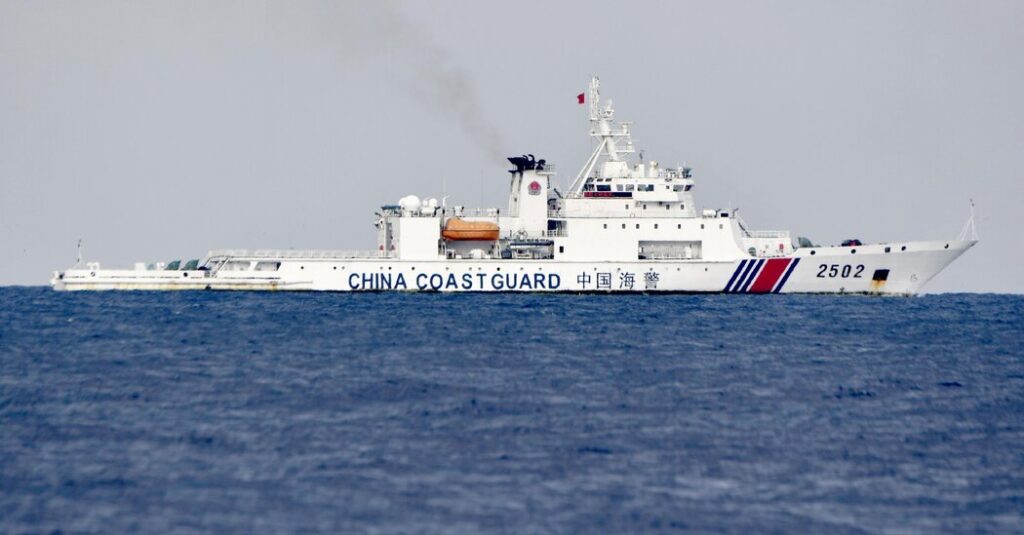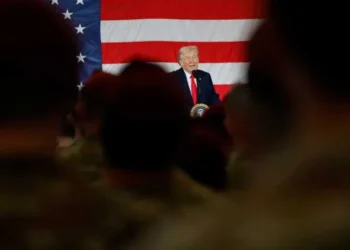China escalated its diplomatic feud with Japan on Sunday by sending Coast Guard ships to patrol near islands the countries both claim, and warning Chinese students in the country about what it said were risks to their safety.
The escalation came after comments this month by Prime Minister Sanae Takaichi of Japan about Taiwan, a self-governed democracy that China considers part of its territory. Ms. Takaichi told the Japanese Parliament that a hypothetical Chinese attack on Taiwan could trigger a military response from Tokyo.
On Friday, the Chinese Embassy in Tokyo warned its citizens against traveling to Japan because of what it described as serious safety risks. China did not provide evidence, but the warning could affect an important part of Japan’s tourism economy. Nearly seven million Chinese travelers visited the country last year, accounting for nearly one in five international tourists, according to Japan’s tourism bureau.
On Sunday, China’s Coast Guard said that some of its ships were patrolling the waters of uninhabited islands — known as Diaoyu in China and Senkaku in Japan — that Japan controls but China also claims. The islands are north of Japan’s westernmost islands and near Taiwan.
China regularly conducts what it describes as “rights enforcement patrols” in waters around the islands, but the latest patrol announcement was the first since Ms. Takaichi’s Taiwan comments.
China’s Education Ministry also warned Chinese students on Sunday to “carefully plan” their study arrangements in Japan. The ministry said, without providing evidence, that there had been recent crimes against Chinese citizens and that safety risks were rising.
This month’s feud ended what had been a brief diplomatic honeymoon between the two countries. Ms. Takaichi, a conservative prime minister who has been in office for less than a month, had a warm meeting with China’s top leader, Xi Jinping, last month in South Korea.
Relations between China and Japan have for decades been prone to flare-ups, fueled largely by atrocities the Japanese army committed in China, including the Nanjing Massacre in 1937, for which Beijing believes Tokyo has never sufficiently apologized.
Ms. Takaichi’s Nov. 7 comments in Parliament were not a significant revision of Japan’s longstanding position of support for Taiwan. But they broke with previous Japanese policy of avoiding any explicit mention of the island in the context of “survival-threatening situations” — a classification that, under Japanese law, allows the deployment of the country’s military.
Like the United States, its close military ally, Japan has long adopted a policy of strategic ambiguity that leaves its intentions vague regarding any future Chinese military attack on Taiwan.
Although Ms. Takaichi later said that her comments did not constitute a change in Japanese policy, China’s Foreign Ministry demanded that she retract her remarks, and Chinese diplomats and commentators unleashed a stream of vitriol. Xue Jian, China’s consul general in Osaka, threatened on social media to cut off Ms. Takaichi’s “filthy head.” (He later deleted the post.)
In its travel advisory on Friday, the Chinese embassy in Tokyo said that Japan’s leaders had made “blatantly provocative remarks regarding Taiwan, severely damaging the atmosphere of people-to-people exchanges between China and Japan and posing serious risks to the safety and security of Chinese citizens in Japan.”
In response, Minoru Kihara, a top Japanese cabinet official, said on Saturday that Japan had urged China to take “appropriate measures,” Japanese news media outlets reported. He did not elaborate.
This is not the first time China has leveraged its outbound tourists and students during diplomatic and trade disputes. In April, as the trade war between the Washington and Beijing escalated, China’s culture and tourism ministry warned travelers to “fully assess the risks” of visiting the United States in light of deteriorating economic and trade relations. Separately, it warned students traveling to the United States to be careful.
In 2020, China issued a starker advisory warning citizens against visiting Australia because of what it described as an increase of racism because of the coronavirus pandemic. The warnings were issued at a time when Australia was leading calls for an investigation into the origins of the coronavirus pandemic, straining relations between the two countries.
In 2017, as relations between South Korea and China deteriorated over South Korea’s decision to deploy an advanced U.S. antimissile system on its soil, China banned the sale of group tours to the country. A report by a South Korean research institute estimated that the country lost about $6.5 billion in revenue from about 3.3 million Chinese tourists over a five month period that year.
Javier C. Hernández contributed reporting.
Yan Zhuang is a Times reporter in Seoul who covers breaking news.
The post China Escalates Japan Feud With Island Patrols and Warnings to Citizens appeared first on New York Times.




